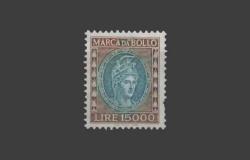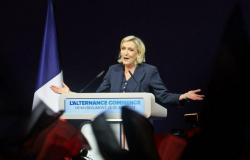«Boom, here comes Gualazza and raise your hand if you’re not happy». Gianni Mura thus began his piece, on 4 July 1972, to recount Ercole Gualazzini’s first victory at the Tour de France. And again, a few lines further down, he explained that the Italian journalists following the race “are all Gualazzinians, because he’s a great guy”. That boy from San Secondo, who in the meantime has become the father of two children and grandfather of five grandchildren, turns 80 today. And raise your hand if you’re not happy. He was a domestique with a license to win: the only Parma native to score in the three major stage races (Giro d’Italia, Tour de France and Vuelta di Spagna). Equipped with a powerful physique, strong on the flats and in the sprint, he has achieved great satisfaction, redeeming an uphill childhood and youth. But Gualazzini sublimated his qualities in making himself available to the captains: the altruism of Hercules, a virtue that everyone still recognizes in him today.
Gualazzini, how will you celebrate these 80 years?
«Nothing in particular. At least for now, since some of my grandchildren are away. We will recover. But there will be, as always, a cake made by my wife Rosanna.”
In November 2022 he fell on his bike and suffered several fractures. How is he now?
«I’m not complaining, but it could have been better: I still feel the after-effects of that fall and, as if that wasn’t enough, about twenty days ago I had a collision with a van. Nothing broken, but there is some pain.”
But you can’t do without the bike, can you?
«Exactly. I cycle on average three times a week, also to keep my spirits up. Within a few years I lost friends like Tarcisio Persegona, Vittorio Adorni, Luciano Armani, Emilio Casalini and Corrado Cavazzini: all very hard blows. When I’m on my bike I talk to them, I feel them closer.”
After the passing of Adorni, Armani and Casalini, you remained the only custodian of the memories of that mythical group.
«I was the youngest: seven years younger than Adorni, a little closer to Armani and Casalini, with whom we had created some wonderful challenges among the Amateurs. We quickly became great friends and have remained forever. How many kilometers together, how many laughs, how much life.”
Let’s rewind the tape and start over: how did you start cycling?
«Mine was a tough childhood. They were hard years for everyone, those after the war, but even more so for me. I grew up without a mother (who emigrated to Switzerland, ed.) or father, I lived with my grandparents, Oreste and Assunta. There was a living to be earned: at 13 I was already working as a journeyman among the bricklayers of the San Secondo cooperative and I continued until I became a professional, at 21.”
So how did the story of Gualazzini the cyclist begin?
«All my friends owned a bike, so I started wanting a sports one. So my uncles Angelo and Antonio, who were two enthusiasts, bought me the first one: a green Ives, used. For me she was the most beautiful in the world. After a few months they decided to let me compete: on my debut, in Langhirano, I came very last. The following week, however, I won an intermediate finish line with wine and mortadella as prizes. Things were getting interesting…”
How did you train at the time?
«I was 14 years old, at that time I was working on a construction site in Cremona: I would leave from San Secondo by bike, then work nine hours, after which I would return home, always by bike obviously. Here it is, my training.”
When did I realize I had talents?
«I moved to the Parma Amatori, where I found two truly special people, Aldo Grandi and Carlo Zerbini. They accompanied me everywhere, they chose the races best suited to my characteristics and I didn’t miss them. In one season as a student I won 19 races.”
By the way, what kind of runner was Ercole Gualazzini?
«A fast long-distance runner, with a good sprint start. However, I really couldn’t digest the climbs, I was too heavy. Over the years I have specialized as the “last man” in throwing sprints to the captain on duty. I was a bit of a precursor to this role which is now essential for sprinters.”
How did the transition to professionalism happen?
«It was the Salvarani brothers who wanted me in their team, while Luciano Pezzi, sporting director, didn’t look favorably on me. He felt bypassed in the choice, so he sent me to races that were unsuitable for my qualities, as if to say “well, you imposed this on me, but he’s not the runner we needed”. I became very demoralized and in the first two seasons among the professionals, ’66 and ’67, I did very little.”
Is it true that no one wanted her anymore?
«Normal, having accomplished little or nothing. But Carlo Zerbini, always him, put me in contact with Max Meyer, a small team managed by Gastone Nencini, and there the wheel began to turn. I also won a stage in the Vuelta in ’69.”
But at the end of that year he still found himself without a team, why?
«Adorni wanted me to go with him to Scic, he explained to me what salary I would have and everything else. But when it was time to sign I discovered that the managers had other figures in mind and so I refused. I found an agreement with a team that was being born, but in December the project foundered.”
Was he at risk of having to quit again?
«Yes, I had practically already done it, starting to work as a bricklayer again with some friends in San Secondo. I was 25 years old and Samuela had recently been born. But then came the best Christmas present I could receive, which still moves me when I think about it…”.
Which?
«On Christmas Eve the phone rings, it’s Luigi Salvarani. He says to me: “Ercole, I’m reading in the newspaper that you’re without a team for next year, is that true?”. I told him what had happened and he asked me if I still wanted to run with them. “Yes, I have some – I replied -. I think I still have to give my best”, “then come to the office to sign”. I hung up, hugged my wife and we burst into tears.”
Can it be defined as a rebirth?
«Of course, I was super motivated. Pezzi had left in the meantime and I wanted to confirm to the Salvarani, exquisite people, the goodness of their choice. The 1970 season started very well: I won two stages and the final classification of the Tour d’Indre et Loire. But there I specialized above all in the role of wingman to captains like Motta, Gimondi and Zandegù.”
In ’71 great satisfaction came at the Giro d’Italia. Did you expect them?
«I had morals and conditions. At the first stage we won the time relay in Puglia and all ten of us wore the pink jersey, unforgettable. Three days later, in Benevento, I lost Zandegù in the traffic of the sprint, I continued straight ahead and won the stage.”
At the end of ’72 Salvarani closed and Gimondi took it with him to Bianchi, where he also found Marino Basso, world champion. What season was it?
«Felice relied on me for the races in Belgium, when it was windy. A little grumpy, but we were great friends. Basso had a particular character, when he didn’t win he often blamed me. It wasn’t an idyll, that’s all.”
And so Franco Cribiori came looking for her for Brooklyn, another turning point. Did he accept immediately?
«Yes, an excellent choice. The three seasons at Brooklyn (from ’74 to ’76, ed.) were wonderful. I could work for captains of the caliber of Patrick Sercu and Roger De Vlaeminck, champions and fantastic people. With Roger we became like brothers.”
Didn’t you mind giving up your ambitions to put yourself at the service of the captains? Couldn’t she have won more?
«Maybe yes, but I swear I have no regrets. Indeed, I was very happy when my work was decisive for their victories. Roger, with me, won two of his four Roubaixes. These are successes that I also feel are mine. The same goes for Patrick.”
In ’77 I left Brooklyn to join Scic, where he ended his career the following year. What was the epilogue?
«I agreed to earn less to get closer to home. They wanted me to be close to the young Saronni and I think I taught him something. He was a young rampant, I also protected him from the bit of hazing that existed in cycling at the time. In ’78, before the Giro, I had some physical problems and had to give up the pink race. At 34 the time had come to say enough.”
Among your victories, which one do you remember most fondly?
«Definitely the Olbia stage of the 1973 Giro dei Sardegna. It was not the most prestigious, but certainly the most exciting. I was about to break away uphill when the Salvarani flagship approached waving a blue handkerchief: the sign that my son Antonio had just been born. The adrenaline spiked, I sprinted and beat a lot of runners. I won four stages at the Giro and two at the Tour, but the memory of that day in Sardinia beats everything.”
Was it difficult to re-enter the world of work?
«Not simple, but perhaps life remembered that it was indebted to me and I had a stroke of luck: I had sent several applications to work in the bank as a clerk, but none of them called. Until one day one of my fans called from Rome, Piero Marchesi, who was head of the personnel office at the Banca dell’Agricoltura, something I didn’t know about. To be honest, at the time, I didn’t even know what his name was. He had also received, among many, my question. When he read my name his eyes lit up and he wasted no time: I was hired!
Today he is a happy grandfather. What is your relationship with your grandchildren?
«Giorgia, Alberto, Francesca, Anna and Pietro, who also bears my surname and rides a bike among the Juniors, are my greatest joy. I am proud to have built such a beautiful family with Rosanna.”
Alberto (Cerri, ed.), is a footballer who has been playing for years between Serie A and B. Do you ever give him any advice?
“I tell him to do everything with the utmost effort, because this way he won’t have any regrets tomorrow.”
And if you could go back, would you change anything about these 80 years?
«Nothing at all. I have had a somewhat troubled life, but I have achieved enormous satisfaction also because I have been able to count on wonderful friends. I would keep everything from these eighty years, even the suffering, because it was that which made me enjoy to the fullest all the good things I have conquered and built with my own efforts.” Best wishes, great Ercole.





